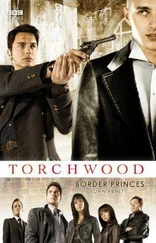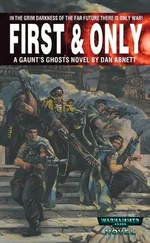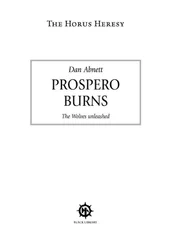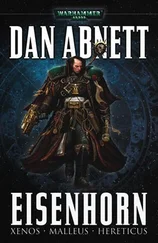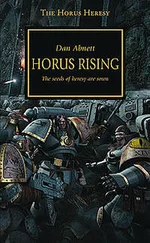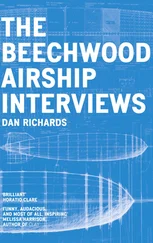Wienand’s ship dropped through the upper layers of Titan’s hazy gas envelope. The void was lost to sight. Saturn’s domineering presence was visible for a few seconds longer as a brown disk in the haze, and then that too was gone and she was enclosed by yellow organonitrogen murk.
Hands awkward in the gauntlets of her void suit rested lightly on the shuttle’s sticks as the roar of atmospheric entry built around the craft. Augur pulses showed nothing dangerous around her, but she scanned the close horizon through the cockpit automatically, tensely searching for hazards she couldn’t possibly see. Reflections on the visor of her suit limited what she could see as much as the organic soup of the air. Flying blind, she was reliant on the craft’s suite of sensors. The altimeter rolled down. The hull’s temperature rose. A brief period of turbulence marked her transition from the upper atmosphere to the lower. The haze thinned, becoming clouds. Through the auspex of the ship she received visual representations of the ground below, and fleeting visible-light glimpses of the landscape.
She fired the ship’s rockets, increased gain to its grav systems. Inquisitorial craft were outfitted with the pinnacle of Adeptus Mechanicus technology, and the approach was smoother than a lesser ship’s. The craft levelled out. She banked round, flying in broad circles in search of a beacon. The hull’s outer temperature plummeted now re-entry friction had stopped. Down the thermal gauge went, impossibly low; Titan was beyond cold. Wienand dropped lower, skimming over a volcano spewing ammonia-water ice. Thick, greasy snowflakes of methane-ethane splatted on the cockpit. Lakes of oily hydrocarbons passed under the ship’s keel, fed by lazy rivers.
Around she went again. Various indicators blinked amber on the ship’s flight boards. The temperature and atmosphere taxed its systems.
‘Where are you,’ she said. ‘Where are you?’
A nav beacon lit up on her main display, pulsing bright yellow in a tangle of contour lines. Breathing a prayer of relief, she swung the ship around and locked on to the location, relinquishing control to the ship’s machine-spirits. The craft flew over more of the strange, mottled landscape. Titan appeared habitable when viewed from safety. It was a lie. If she stepped outside without her suit she’d die. She had seen airless worlds and death planets, and worlds consumed perpetually by fire, but never had she had cause to come somewhere as cold as this. Titan exceeded all parameters Terran life had set itself. It was hard to imagine Space Marines living there.
Jagged peaks of ice appeared ahead. At such temperatures, water took the place of rock. Low gravity allowed tectonic upthrust to make them oddly tall. They were fairy peaks, something from a child’s tale.
The ship flew right at them. Wienand looked long at the approach vector, described on a glass screen as a tunnel of boxes rushing over the representation of the ship. She looked back at the mountains, seeing no sign of any structure. Perhaps this was how the Grey Knights dealt with unwanted visitors. Staged accidents were easier to brush away than unexplained weapons discharge.
An ice cliff came at her, black as night and harder than granite. She held her breath. At five hundred metres, green light shone from no discernible source, illuminating a gate of plain plasteel for less than a second before blinking out. The gate vanished again, the cliff becoming totally black in the hydrocarbon snow. Wienand let the ship fly right at it, trusting the light to be an invitation to an open way, and not a quick route to death.
The gate was open. Her lighter’s beams shone into a small, rectangular space, big enough to accommodate a single Space Marine gunship, no more. She swore loudly and slammed on the front jets to full burn. A smooth ice wall rushed at her, then she stopped abruptly, slamming painfully into her seat restraints.
A flashing light drew her attention to a datascreen. Her ship had been caught in a gravity sling like a ball in a glove.
‘Land,’ said a voice through the vox.
She activated the ship’s landing cycle and the sling shut off. Her lighter touched down on a metal floor. A moment later it began to sink down a shaft. Hardened plasteel runners were embedded directly into the rock-ice. Every thirty metres dim yellow lumens punctuated the shaft, the only lights besides those of her ship.
The elevator came out into a huge cave. The platform touched down and rotated. Metallic clanks sounded underneath her, and the ship was conveyed sideways, then backwards, and brought to rest in a docking bay carved from the ice of the moon. There were many of these stalls, each one occupied by a Thunderhawk in a bluish-silver livery.
Wienand waited in her restraints for further instruction. ‘Hello?’ she said into the vox. ‘What do I do now?’
Receiving no reply, she decided to leave. The gauge showed the temperature in the hangar to be minus-fifty degrees, warmer than the surface, still ultimately deadly.
The ship’s ramp opened. She punched open her belt locks and exited into the hangar. It glowed with soft blue light under which the Thunderhawks slept, glittering with carbon frost. Water ice furred their heraldry of a book transfixed by a sword. There were other ways into the hangar, she saw, and other kinds of ship. A broad ramp led lower into the icy bedrock, marked with the imprints of tank treads.
She turned around, seeking a way out. Seeing none, she went to the cave wall where she found a door, hidden by a natural camouflage of frost.
‘This is Inquisitor Wienand, I have done as instructed. Are you going to leave me here?’ The imperiousness of her voice in the silent chamber abashed her.
Lights blinked over the door. With a sighing groan, it cracked open, shedding plates of ice and showers of hoarfrost upon the threshold.
Beyond the door stood a Space Marine unlike any other she had ever met. He was ageless in the way of the Adeptus Astartes, but carried an air of great venerability that outmatched even that of Veritus. His face was leathery, tanned by the light of myriad suns, and wrinkled with fine lines. The skin was folded with age over his eyes, one of which had a pronounced squint — the mark of an old injury, perhaps — and his forehead was a mass of long-service studs.
In the deadly cold he was barefoot and wore simple robes. Plumes of steam blew from his nostrils with each steady breath. Despite his great age he was tall and proud, his physiology distorted by his enhancement, neural plugs glinting in the grotesque musculature of his arms, but it was his psychic potency that took her aback. Wienand was no psyker, although many inquisitors were, but still she could feel his power emanating from his eyes. A nimbus of light from some internal source shone around his head. Wienand was overwhelmed by a sense of the holy; this was a warrior saint. She was one step from the Emperor Himself, and she fought the urge to prostrate herself before him.
‘I am Supreme Grand Master Janus of the Grey Knights,’ he said. He looked on her.
She felt the touch of his mind on hers and she shivered.
‘I am Inquisitor Wienand. I bring you news of a reorganisation within our ordos, and the formation of an order of specific relevance to your brotherhood.’
‘Sindermann told me this day would come. I grieve for his passing. He was an old friend and will be missed. But it is best not to dwell on the past. What has gone cannot be helped, only the future may be saved. I sense now is the time for new friendships.’ He stood aside, and held open his arms in welcome. ‘You may enter, Lady Inquisitor Wienand. Come, we have much to discuss.’
Chapter Sixteen
Fury of the Space Marines
Four hundred Space Marines came to Terra. A company each from two of the newly founded Chapters, the Halo Brethren and the Sable Swords. Flying with them were two hundred Imperial Fists of the First, Fourth and Fifth Companies. This time, the crowds were not out to meet them.
Читать дальше


